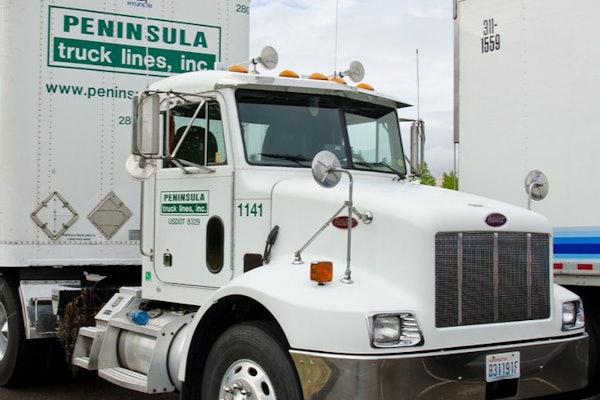While Democrats were winning Capitol Hill majorities in both the U.S. House and U.S. Senate in the Nov. 7 midterm election, Democrats also took back the Indiana House in the wake of a controversial GOP-led leasing of the Indiana Toll Road.
Transportation was a nationwide issue, with voters in 14 states deciding the fate of 30 transportation-related ballot initiatives, according to the American Road & Transportation Builders Association. Of the 30 ballot measures, 28 asked voters to initiate or increase taxes or approve bonds to fund transportation improvements. Voters approved 23.
The national trend to send Democrats to Washington did not create a win for John Bradbury of Rising Fawn, Ga., a trucker who lost to a seven-term GOP incumbent in Georgia’s heavily Republican 9th Congressional District.
Among the Republican incumbents who lost their seats to Democrats Nov. 7 were the two who had received, as of October, the most contributions from the trucking industry, according to the non-partisan Center for Responsive Politics: U.S. Sen. Mark Kennedy, R-Minn., who received $63,200, and U.S. Sen. Jim Talent, R-Mo., who received $55,400.
The 75-year lease of the toll road to a private Spanish-Australian company was far from the only contentious issue in Indiana this year – the state’s switch to daylight-saving time, largely unnoticed beyond the state line, was another – but it was the most closely watched by the trucking industry.
The Indiana Motor Truck Association supported the lease, and a graduated three-year increase in the truck toll from $14 to $32, as a way to fund highway improvements statewide. But the Owner-Operator Independent Drivers Association, which advocates a boycott of the toll road, had urged Indianans to retaliate at the ballot box against the legislators who approved the lease, saying a message needed to be sent to other states considering similar public-private road partnerships.
The Nov. 7 vote turned the 52-48 Republican majority in the Indiana House into a 51-49 Democratic majority. In line to be the next speaker is Rep. B. Patrick Bauer, D-South Bend, who had predicted the toll road would be a lead factor in the election.
Indiana voters also ousted three Republican congressmen, replacing them with Democrats, so that the state’s U.S. House delegation is now five Democrats and four Republicans. Political pundits attributed that change, like the larger changes on Capitol Hill, not to state issues but to voter disapproval of Congress and the Bush administration, specifically the handling of the Iraq war.
Bradbury, a Path Truck Lines company driver, garnered 24 percent of the vote against former judge Nathan Deal, R-Ga., who had run unopposed in the previous three elections. “I was somewhat disappointed,” Bradbury said. “I was hoping for a few more percentage points.”
Bradbury said he is seriously considering running again in two years, but would start raising funds earlier. He encouraged other truckers to consider politics. “If they think they need a change and they think they can do it, go for it,” he said. “Too many people dismiss truckers. We are as eligible and as intelligent as anyone with a law degree.”
In Minnesota, voters OK’d an amendment to the state constitution that all revenue from car and truck sales taxes must be used for highways and transit, without diversion to other causes. The amendment is expected to increase funding for roads and transit by $300 million a year.
Among the amendment’s supporters were the state Chamber of Commerce and both the major gubernatorial candidates: victorious incumbent Gov. Tim Pawlenty, a Republican; and Attorney General Mike Hatch, a Democrat.
Pawlenty’s victory in Minnesota notwithstanding, the Nov. 7 election left a majority of governor’s mansions in the hands of Democrats. As for state legislatures, the Nov. 7 vote left Democrats in control of both houses in 23 states, compared to 16 states for Republicans. Before Nov. 7, that tally was 20 legislatures controlled by Republicans, 19 controlled by Democrats.








